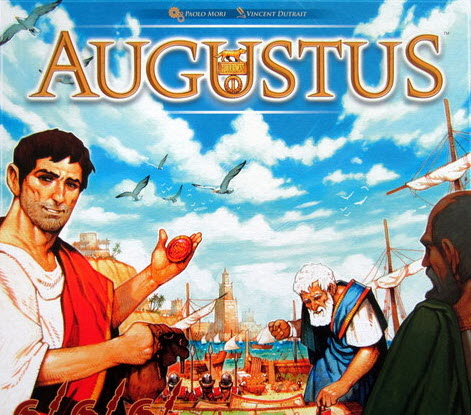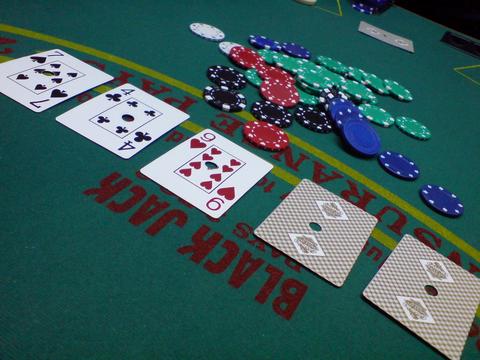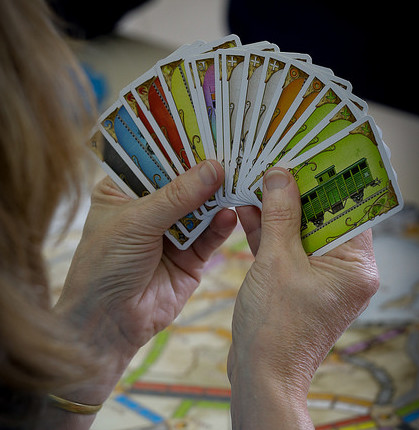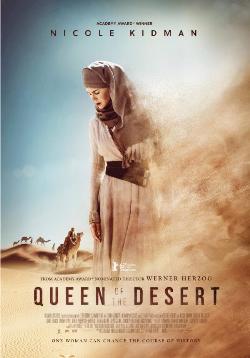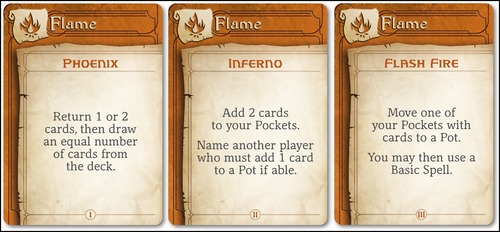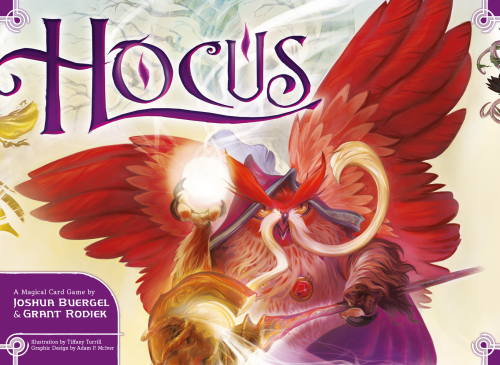Hocus in its final form may be seen now as ‘wizard poker’, and in many ways that’s a fair assessment of what’s going on. It’s the sort of thing wizards would sit down for if they wanted an evening of cards and pretzels. Regular poker won’t do, you see. These are wizards; they can’t resist being a little tricksy in everything they do. Yet like most games, the design cycle of Hocus has been up and down. It’s seen bets fail and gambles pay off. And it had to be different enough to satisfy the wizard-kind while remaining familiar enough that us normal people can comprehend it.
To better understand how this all came to be, we’ve called in the archivists themselves to explain how they pieced this whole game together. What follows is the journal of designers Grant Rodiek and Joshua Buergel. Hopefully they’ll be able to shed some light on how they got that right bit of magic into Hocus.
Enjoy!
It’s difficult writing a designer diary for Hocus, because it spent approximately 18 or so months in development. The game was tested hundreds of times, and every test led to another tweak, a significant change, or a gentle massaging of a problem. As such, it’s possible to detail precisely every step of the journey, but that makes for poor reading, and for us in parts, a rough trod through memory lane. Instead, let’s concentrate on the significant moments of the game’s life, and how we evolved it from Wizard Poker to Hocus.
“Poker Plus Spells”
The game emerged from the odd question of “would poker be more fun if mixed with spells?” I don’t recall the origin of the thought, just that it occurred. Originally, the idea was to play simple hands of Texas Hold ‘Em, but between rounds, similar to acquiring cards in Ascension, players would spend their winnings obtaining potent Spells that augmented their ability.
This initial version experienced quick iteration, as it was easy to find testers who liked the premise, and the game played quickly. It had several problems, however, including the ridiculous mismatch in spell potency, a lack of a reason to buy more than one good spell (and use it to dominate and horde winnings), a runaway leader issue, and the fact that simply strapping a spell book to a traditional poker game didn’t quite work. A big reason for this is that all of the deeply understood power and probability of hands like Full House, Straight, and Three of a Kind were immediately garbled. This created immense dissonance for people playing the game and ultimately led to an unsatisfying experience. The currency in the game was also causing a lot of trouble in these early tests.
This problem would confound Hocus for a year until its final mechanisms were discovered, but right now it’s simply Wizard Poker. We’re getting ahead of ourselves.
Josh joined the project about a month into its life, first as a print-and-play tester, then an eager developer, and soon, as co-designer. Quickly, our imagination outpaced our brains and we had a grand vision for a series of games all built around a single deck. There was going to be poker and cribbage and blackjack and…turns out, the poker game was moving very quickly and needed our full attention. So we tossed the rest and focused on poker.
Both of us really liked the premise of the game. It was immediately appealing to so many people with whom we tested, and the idea of mixing a classic, proven design with some new tricks was very fun as a design challenge. It also seemed to be a good angle as a publisher. Augustus was nominated for the Spiel des Jahres back in 2013 for adding a fresh coat of paint to Bingo. Bingo! King of Tokyo made Yahtzee far more compelling. People watch other people play Texas Hold ‘Em Poker on television, so surely a gamer’s version could have legs, right?
The Slot Machine
We had a few guiding principles initially. Wizard Poker, now called Wozzle, should play in about a half hour, be relatively easy to learn, not require real money, and not have player elimination. These principles are easily stated but were proving incredibly difficult to implement. But, we’d made huge strides in the game.
For one, we tested dozens of Spells and had settled on about 26 or so. We tested every idea we had, threw away a lot of bad ones, and felt good about the level of distillation. Another improvement is that the Spells were no longer owned by individual players, but were shared by everyone at the table. Each game there would be two Basic Spells, which would persist the entire game. We had a few versions of them for sake of variety, but fundamentally, one was about adding cards to the Community and another about drawing cards for yourself. Then, each round two new Spells would be drawn from a deck. This meant every round had new opportunities for players and there was a nice level of variation.
We’d also addressed the runaway leader problem and introduced a neat costing mechanism in the process. Players all began Wozzle with an equal number of coins. On their turns, players would use a single Spell. The cost would start at 1 coin. The next player to use it would have to pay 2 coins. Then 3 coins. This went on for three rounds. This offered a neat choice of which Spell you wanted to use, but also, which spells you wanted to make more expensive to hinder your opponents.
The other side of this is that you were bidding on the outcome of the round. The player who built the best poker hand with cards in the middle and their hand would win all the coins paid to bid. This meant they suddenly had a ton of coins, except the winner at the end of each round would pay every player 1 coin in order to buy one point. This meant the coins were redistributed and everyone began the next round with an approximately equal chance of emerging on top themselves.
The game ended when one player bought a certain number of points. At its best, the game was close as players would alternate wins. At its worst, a single player would win three rounds in a row. But the assumption there was that they played well and a new game could begin.
We felt pretty good about this. In fact, we felt so good that we began experimenting with custom suits, which we called Arcana. We paid to print 10 of them and have them handed out at Origins in 2014. Imagine us smiling, chest out, on a west coast cliff gazing out at the ocean. Remember it, as we’re about to get mega deflated.
The game fizzled horribly at Origins. We had a small number of people email us a resounding “meh” and a lot of silence from everyone else who nabbed a copy. Awkward. Even better, we received almost no feedback. Just, “meh.” Yeesh.
We’re experienced developers from our day job and hobby experience. Both of us have been on tech development teams for 10 and and 18 years, respectively. I’ve been designing and developing board games seriously for 5 years and Josh has extensive development experience with GMT.
In absence of feedback, we looked inward and ripped Wozzle apart ourselves. The answers, they weren’t pretty:
- Wozzle was basically a slot machine. It didn’t really matter which Spells you used. You were all just taking a tug on the handle hoping something good would spit out.
- We thought we had 26 good Spells, but really we just had 26 ways to do a thing. They weren’t interesting. They didn’t change the game.
- There was very little skill involved in the game.
- People didn’t get the escalating cost mechanism. It’s really simple, but wow, nobody could get it. We tried a ton of different ways to explain it, represent it, you name it. Time to cut bait.
- The game had an awful lot of tokens and cards for such a meaningless experience. Not good for a low-cost first-time publishing effort.
- The game was essentially a sprint to making a Full House. Instead of a nice distribution of hands, it was just “do you have a full house?” If the answer was no, go sit at another table. Because you lost.
- The game was a semi-lousy Texas Hold ‘Em variant. Cards would be dealt out to the middle, you’d effectively bet each round, then you’d reveal your cards and the best hand would win. Our roots were showing, and not in a favorable light.
Remember earlier when we stood triumphantly at the cliffs? Well, they eroded. We fell painfully into the ocean.
Honestly, there was a chance we could have stopped there. Without some careful introspection, we could have declared the game “good enough” and moved forward. It functioned, it was coherent, it was colorful, and it was reasonably fun. With quality art, we could have raised money on Kickstarter with this version. It would have sunk without a trace afterwards, but we could have declared victory.
The Slog
A process we used often in the development of Hocus, which by this time was now called Hocus Poker, was to independently note what we liked, what we didn’t like, then discuss it. We used this to re-examine our principles for the project in light of the Great Origins Meh of 2014. We emerged with the following goals:
- The game should be cards only.
- The game should have a strong skill component.
- Every Spell should matter.
- We needed to be a unique game. Not just a Texas Hold ‘Em variant.
With these principles in hand, we set off towards the dark, stormy horizon. We spent about six months making lousy, horrible games. About 90% of them were scrapped after a single test, and we scrapped so many that I actually struggle to remember all of them.
We had one where play was continuous. Players would buy Spells, obtain cards (face up or blind from the deck), and when they felt they were ready, they’d declare a showdown and compete. It was neat in theory, except as soon as someone had a good hand, they would just go for it. This meant really only one person was competing for each hand.
This version had some neat ideas, like negative points (which we might revisit for a Hocus expansion), but more importantly, we had the idea of building multiple hands. The hope for the game was that you’d build 1-3 hands at a time, then choose when to use each one for the right Community. While it didn’t work in this format, we squirreled the idea away and kept at it. We also figured out that cards could be worth points. Duality is always fun, always, and playing cards to build sets or to make points was a really neat decision.
But for every idea we kept, like the multiple pockets, we had far more we couldn’t. With each version we learned some sacred line in the sand ideas that we knew just flat didn’t work. Things like having more than two cards in a personal pocket, introducing wild cards, altering the classic poker hands in any way (seriously, don’t do it), or modifying the standard deck of cards. I’ve never seen a tester so angry as when they found out we replaced a Full House with a hand called the Crossroads, or that we replaced the standard deck with 5 suits of 10 cards. Literally, veins were showing.
There were some bright spots though. Some of our individual Spells were working, even if the core mechanisms were an absolute mess. Being able to play cards in the Community face down was fun. Illusion was born. Being able to draw more cards was fun. Hi, Storm. Being able to do wild, unpredictable things was fun. Welcome, Chaos. But, every small victory in fixing a card didn’t help the fact that our house was sinking. And on fire. And next to really awful neighbors.
We work in Google Drive, and there are eight – eight – worksheets called “Deprecated Spells” in our content spreadsheet. We were experimenting and trying so many things to see what stuck.
Things were looking bleak by this point. It was getting to the point of calling it quits. By now it was about October 2014, and we’d been at the game for about 10 months with nothing to show for it. We couldn’t even get past the fact that the hand distribution and probability didn’t work. Our game was still fundamentally about chasing a Full House.
Then, we had an idea. If you have multiple pockets…why not have multiple communities? We kept failing to find a reason to justify the multiple pockets idea, but if each pocket could only play with one community, then you could have multiple of those. This seemed like a neat idea in concept. So, okay, sure, we figured. We’ll try again.
I kept a Test Log for a while to list notes on every test. For a long time, my notes read like something from a Werner Herzog film:
- “Full House issues. Clarifications needed.”
- “Dominant hand issues. Chaos is broken. Need to clarify endgame.”
- “Need to reduce or remove gems. Dominant hand issues.”
On November 13, 2014, my log said “THIS IS IT.” I sent Josh an email that probably sounded like it was from a crazy person. If you’ve seen Cast Away, remember when Tom Hanks creates fire? That was me. Josh nodded, cautiously (I assume; he lives in Seattle), and went to test it himself. Not long after, he sent me an email that was something along the lines of “THIS IS IT.”
We emerged from the woods.
What we had found was a game that required skill and offered real choices. Players had to think to play well, and if you won, you felt like you’d achieved something. But, bottom line, we’d created a game that we each wanted to play a lot more.
Balance and Wording
We took this version to BGG Con 2014 in Dallas just before Thanksgiving. It played very well, which was a relief. We also showed it to a few publishers who asked to see it. None were interested, which was fine as we wanted to publish it anyhow, although one did ask if you could play the game without Spells. You know, to make it simpler.
A few days later at my family’s house during Thanksgiving, I tried Hocus Poker without Spells. It was a huge hit, and the ‘Classic’ version was born. It’s pretty thrilling that the final game has so many ways to play. Classic emerged during blind testing as the simpler but more strategic version of Hocus, and I’m proud to say it isn’t a dumbed down tutorial mode. It’s just another way to play.
At this point we boldly decided we were going to publish Hocus Poker. We set a timeline that gave us plenty of time to finalize development, hire an artist, and prepare for the task. The end of June 2015 was our date.
It turned out we needed every second, but that’s another story.
The final version of Hocus features 24 unique Spells, split into 8 Spellbooks. Every book features 3 of the Spells which need to be unique, reasonably powered, and complementary with one another. 24 doesn’t seem like many cards, but it was an absolute bear to finalize them.
The challenge with balancing Hocus is that the number of players involved, which Spellbooks are in play, and the cards dealt all really change things. We were thankfully able to enlist the help of a great deal of blind testers and local testers willing to simply dive in and test and test and test. There wasn’t a way to math it out, so we applied inefficient brute force.
Some Spellbooks finalized very quickly. Flame, Alchemy, and Chaos were relatively easy. Others were monsters. Storm made complete sense, but it was just too powerful, and it took a long time to figure out how to curtail it. Illusion needed just a few very tiny tweaks to make it reasonable. Darkness was woefully underpowered for too long.
We then had the bright idea to take advantage of our printing sheets . Each sheet had 54 cards, and we had two, which meant we had about 108 cards in our budget. So we went and added Enchantment and Chronomancy. Oh dear. Just when we had more than enough to do, we piled more onto our plates. On top of these 24 Spells, there were 13 Owls in the game. Which then became 15. Every Owl has a unique Spell. Unlike Spells, however, these were earned during the course of the game and were limited to a single use. This made them easier to balance, as they couldn’t be used repeatedly like the Spells, but it meant more testing.
Many players kept stating we should curtail the use of Spells or make them cost something, but we preferred the simplicity. Furthermore, many people wanted them to have a cost, we believe, because in most games things cost resources. It felt odd for some folks to be able to use a powerful spell repeatedly. Hocus doesn’t have overt resources though, but time and your cards definitely factor in. Plus, rounds have limited turns, and many of the Spells are contextual. We felt confident that we could polish them such that using the same Spell repeatedly wasn’t optimal. We believe this to be the case now.
The bright spot amid this balance effort was that we didn’t change the core mechanisms of Hocus after November. The game we took to BGG Con is more or less the game we published. Our Spells and Owls were massaged constantly, but Hocus Classic didn’t change, save for slight tinkering to make it viable for 2 and 5 player games.
The solutions here were simple, and were aided by our constant frustrations with the probability of the hands. We found in 2-player games the distribution of cards was too wide to allow players to compete in multiple hands. We implemented a rule that during setup, players removed the 1 and 13 cards of every suit. This condensed the deck and fixed the probability for 2 player games. We then applied the same idea to 5-player games, which at that point were far too tight. We added a 0 and 14 to every suit, and a third Community. As a result, we’re able to claim 2-5 on the box without a “wink wink” that happens with some games.
The final major hurdles were wording on the Spells and in our rulebook. We had a handful of nitpickers who raked us over the coals, and rightly so. It seems insignificant, but using ‘play’ or ‘place’ consistently, using capitalization consistently, spelling things out, including “randomly,”…these all lead to a far more polished game that’s easier to learn and enjoy.
We also had to settle on the final name. We had a lot of weird ideas, like Wyrd, and Wild, and Oddly, but ultimately, we simply removed the “poker” to name the game just Hocus.
The End
Hocus was a dreadful slog at both ends. In the beginning, we fooled ourselves into thinking we had a hit, only to spend a long time trying to turn the idea into a viable game. When we finally found it, we experienced true joy, but then had to get going once again to polish the idea. Ultimately, we kept going because we loved the premise, and once we found it, we loved the game.
Hocus is relatively simple to learn, but due to the variety in the Spells and level of player interaction, there’s quite a bit of strategy. Everything is player controlled, and the game is deeply interactive, which makes it a really fun tabletop experience. We’re incredibly proud of it and will gladly endure a similar struggle if we can make a game we like as much as Hocus.
Thanks for reading!
Hocus creators Grant Rodiek and Joshua Buergel were gracious enough to supply this designer journal. They can be found most readily via Twitter.
Discuss this, and other articles, on our social media!
Photo Credits: Hocus by Hyperbole Games; Poker by Ross Elliott; Cliffside by Eileen Sanda; TTR by Michel Dangmann; Poker flip card by beaumontpete.


